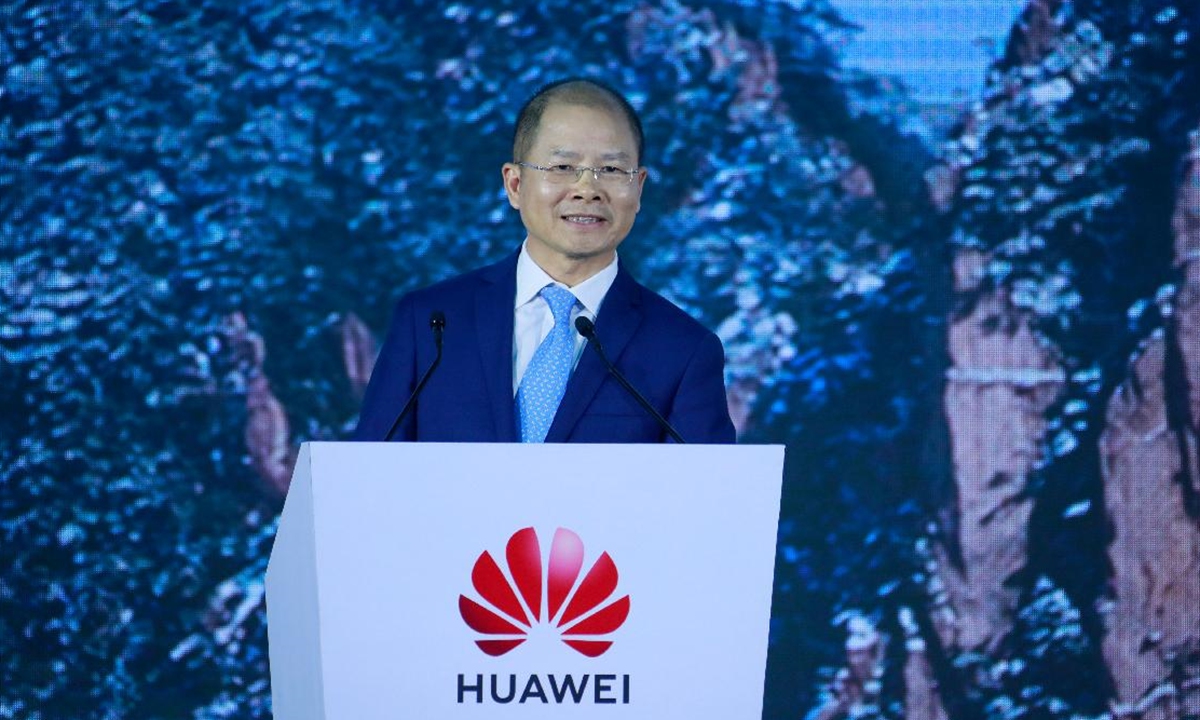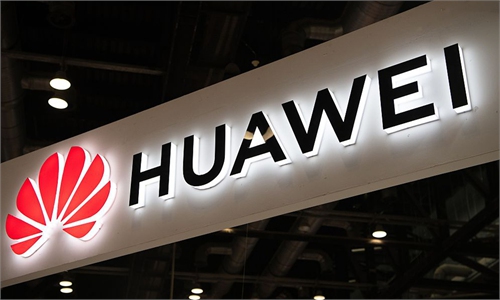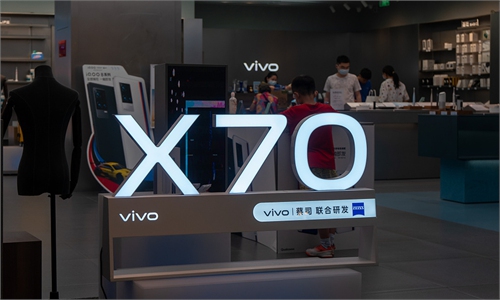
Huawei rotating chairman Eric Xu Zhijun Photo: Courtesy of Huawei
Chinese telecom giant Huawei Technologies has unveiled its 6G plans, saying that it aims to launch 6G products around 2030, the company's rotating chairman Eric Xu Zhiju wrote recently, in a sign of the company's resilience after a year-long US' ban.
Xu discussed Huawei's 6G plans in a recent book preface, which was published on Huawei's online community Xinsheng. Analysts said that though the US' ban imposed a year ago on Wednesday caused some "flesh wound," the company is well positioned to continue to lead in the coming 6G era.
According to the article written by Xu, 6G has a more complicated technology environment than 5G, with impact likely to come from multiple technologies like cloud computing, blockchain and big data. He disclosed that Huawei started investment in 6G research in 2017, when it was pushing 5G commercialization.
"Huawei will define 5.5G and research 6G at the same time in the next few years, and it is a test of the whole industry's imagination and creativity whether 6G can surpass (5G and 5.5G technologies)," Xu wrote.
Xu's comments on 6G came just days before the one year anniversary of the US chip ban targeting the company. On September 15, 2020, the US officially cut off Huawei from all suppliers, whose products contain US technologies, prompting many overseas media to speculate then whether Huawei, which has been reliant upon chip imports, can survive such a ban.
However, Huawei's business performance this year has exceeded market expectations. In the first half of 2021, Huawei's sales revenues slumped by 29 percent on a yearly basis, but its net profit increased 9.8 percent compared with a 9.2-percent growth last year.
"The US ban has hurt Huawei's business to some extent, but has not been able to hurt it fundamentally. Backed by China's vast market, Huawei managed to maintain its capital, staff team and research capabilities, which I believe will empower the company to push forward next-generation technologies and reinforce its lead in the global telecom industry," independent tech analyst Xiang Ligang told the Global Times on Sunday.
However, Xu, as well as the experts, mentioned the shadow of geopolitical uncertainties hanging over the research and development of 6G technologies, as Huawei might still be excluded from overseas markets in 6G products.
In the article, Xu acknowledged that 6G will have to face a complicated environment even at the research stage. He didn't specifically mention anything about a US crackdown, but stressed that deepening cooperation is more important than ever. However, geopolitical fluctuations and the de-globalization trend are posing obstacles and challenges to such cooperation, he said.
"Whether the industries can achieve satisfying results (in 6G development) around 2030 largely depends on such factors as if the process of defining 6G is open enough, whether the participants are pluralistic, and if the communication is thorough enough," Xu said.
Xu also noted that Huawei is willing to hold discussions with companies and industries that might need 6G technologies to define 6G jointly.
Telecom veteran expert Fu Liang said that the global geopolitical situation has a lot of uncertainties, but Huawei, as well as other global telecom giants, should never stop researching and developing telecom technologies.
"If political tensions worsen, it's also possible that 6G will have two sets of standards instead one like in the past, but of course that will increase the costs of connectivity and bring losses to global companies," he told the Global Times.
Xiang is more optimistic, though, saying that the side effects of the global splitting trend in the 5G era, like pandemic control inconveniences (because of uneven telecom services) will raise alarms among countries and push them to cooperate more in 6G development. He also predicted that countries will discuss the 6G vision in 2023 and formulate 6G standards by around 2028.




